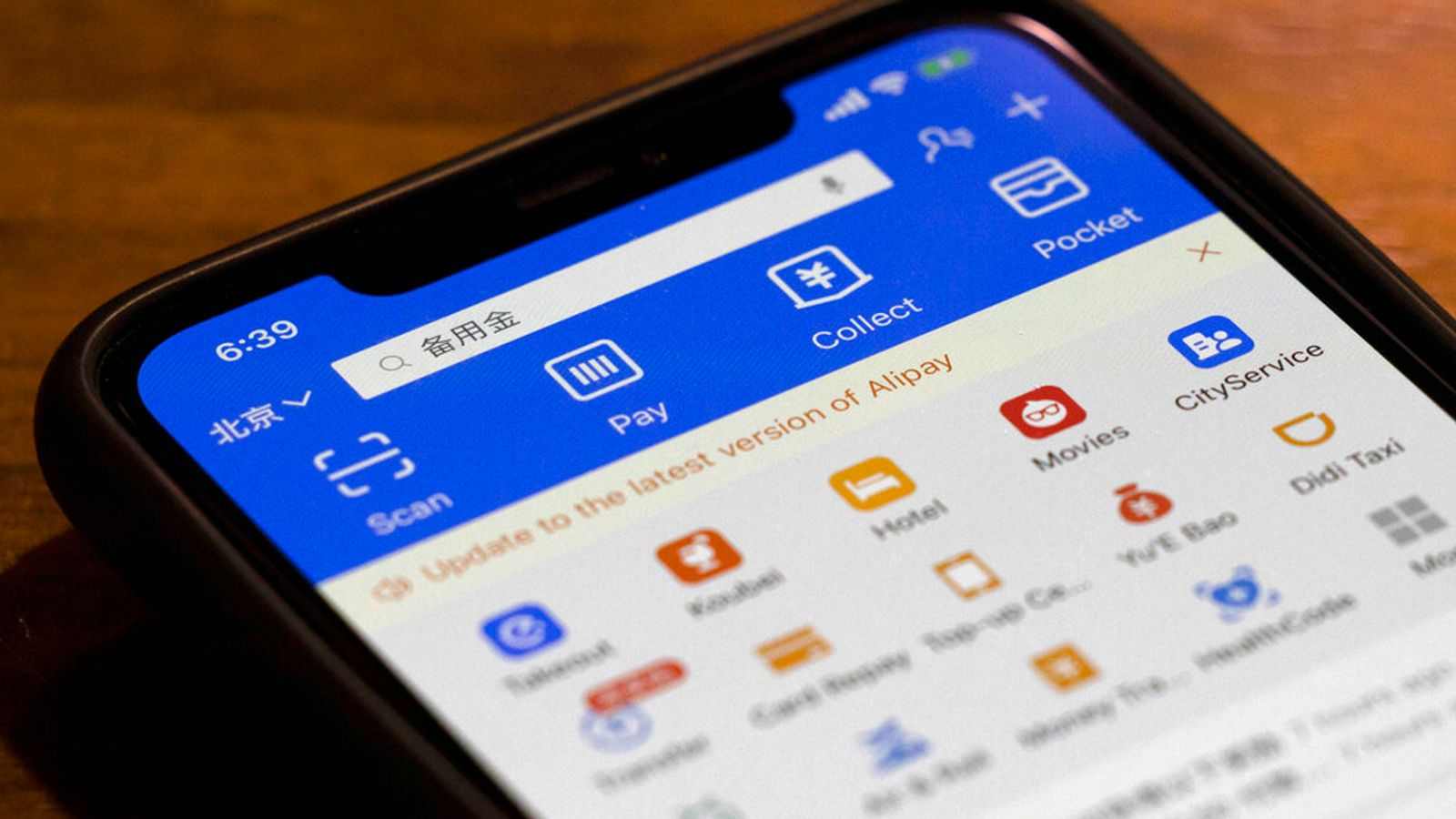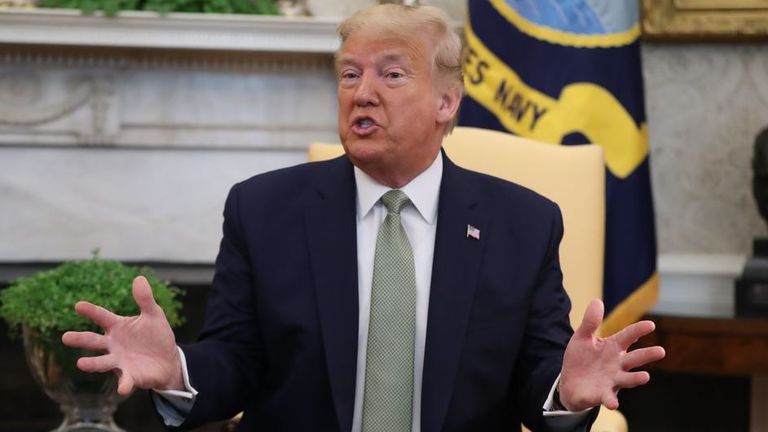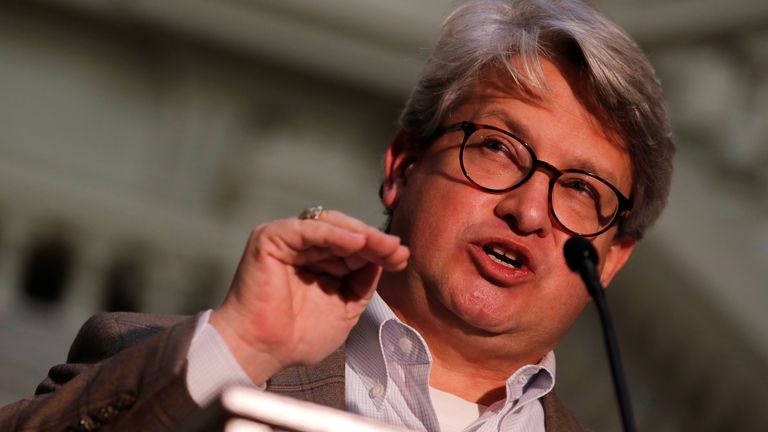With just a fortnight remaining before the inauguration of Joe Biden, Donald Trump has signed an executive order banning transactions with eight Chinese apps and their developers.
The move hits Alipay, the payment platform and sister business to Alibaba owned by Chinese e-commerce giant Ant Group, whose Jack Ma is currently laying low after clashing with regulators in Beijing.
It also bans on national security grounds transactions with “persons that develop or control” seven other apps, comprising WeChat, QQ Wallet, SHAREit, CamScanner, Tencent QQ, VMate and WPS Office.
While the ban underlines the Trump administration’s China strategy, it won’t enter into force for 45 days meaning the Biden administration will be responsible for defining the scope of the ban and enforcing it.
It is not yet clear how the Biden administration plans to proceed on this order or on Mr Trump’s general approach to China.
A member of the British government who spoke to Sky News about Huawei said the UK believes there is bipartisan support in the US for measures sanctioning China.
Mr Trump accused China of using “bulk data collection” to advance its national security agenda, and claimed that the apps and companies he targeted with the order were being banned because they put Americans at risk.
US officials have accused China of using data stolen in several hacks, most significant that of the Office of Personnel Management – which contains the records of all federal government employees – to build dossiers.
“The United States has assessed that a number of Chinese connected software applications automatically capture vast swathes of information from millions of users in the United States, including sensitive personally identifiable information and private information,” the order stated.
It follows an applauded three-part series on Chinese espionage published in Foreign Policy magazine, concluding last December, that reported US officials claiming Chinese firms have been enlisted to process stolen data for China’s spy agencies.
Similar actions from the Trump administration targeting the social media app TikTok and the telecommunications company Huawei have had mixed results.
Despite ordering ByteDance, TikTok’s parent company, to either close or sell its US assets, legal battles have delayed this order from being implemented.
However, the US sanctions on Huawei have successfully made the UK reassess whether the company’s equipment could be safely included with Britain’s 5G infrastructure.
After initially giving the company the green light to provide radio equipment the government performed a U-turn and banned mobile networks from purchasing any new Huawei equipment, while also obliging them to replace all of the equipment they currently used within the next six years.


